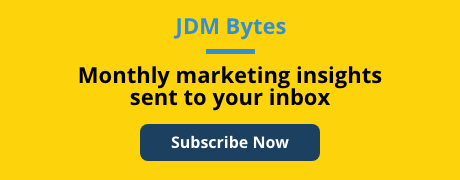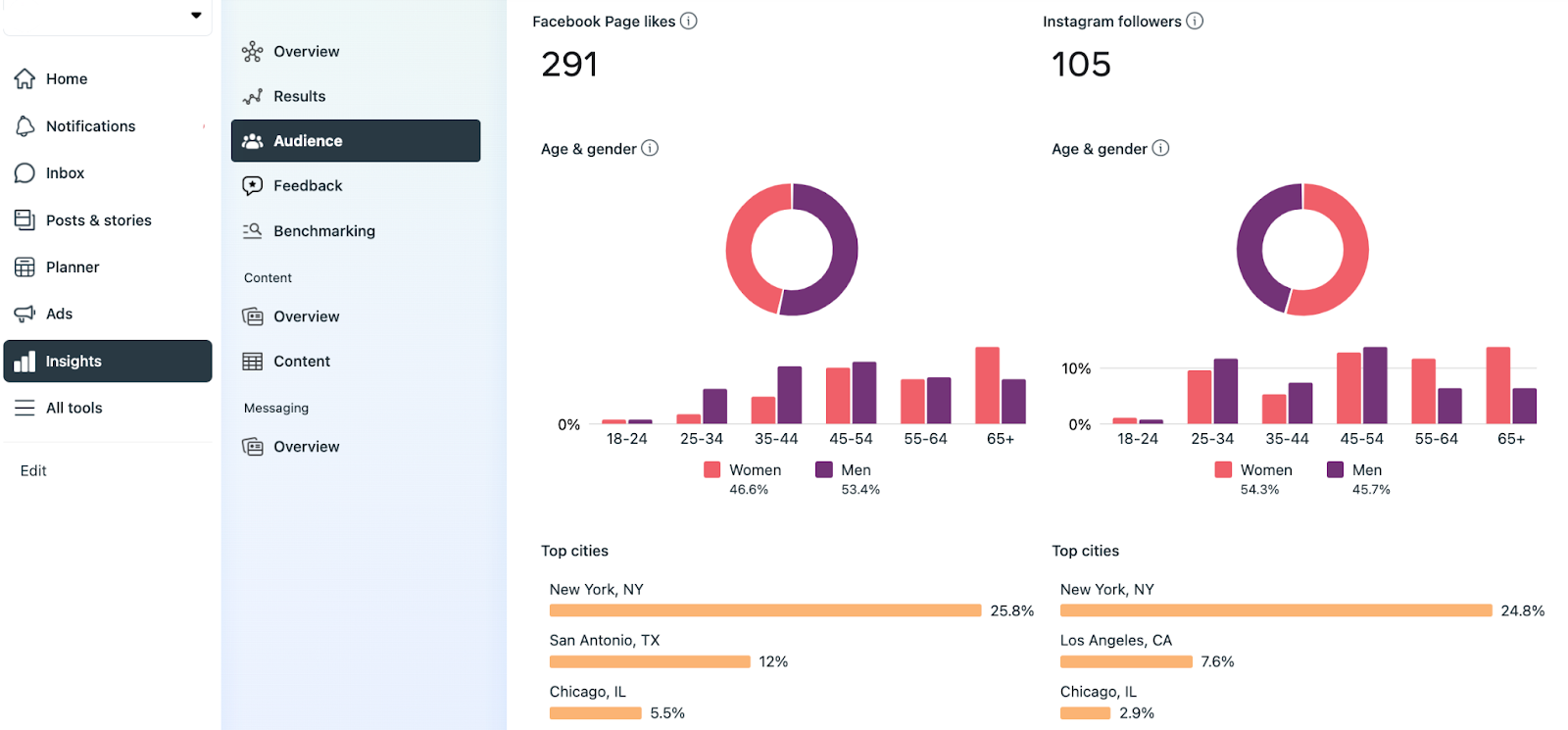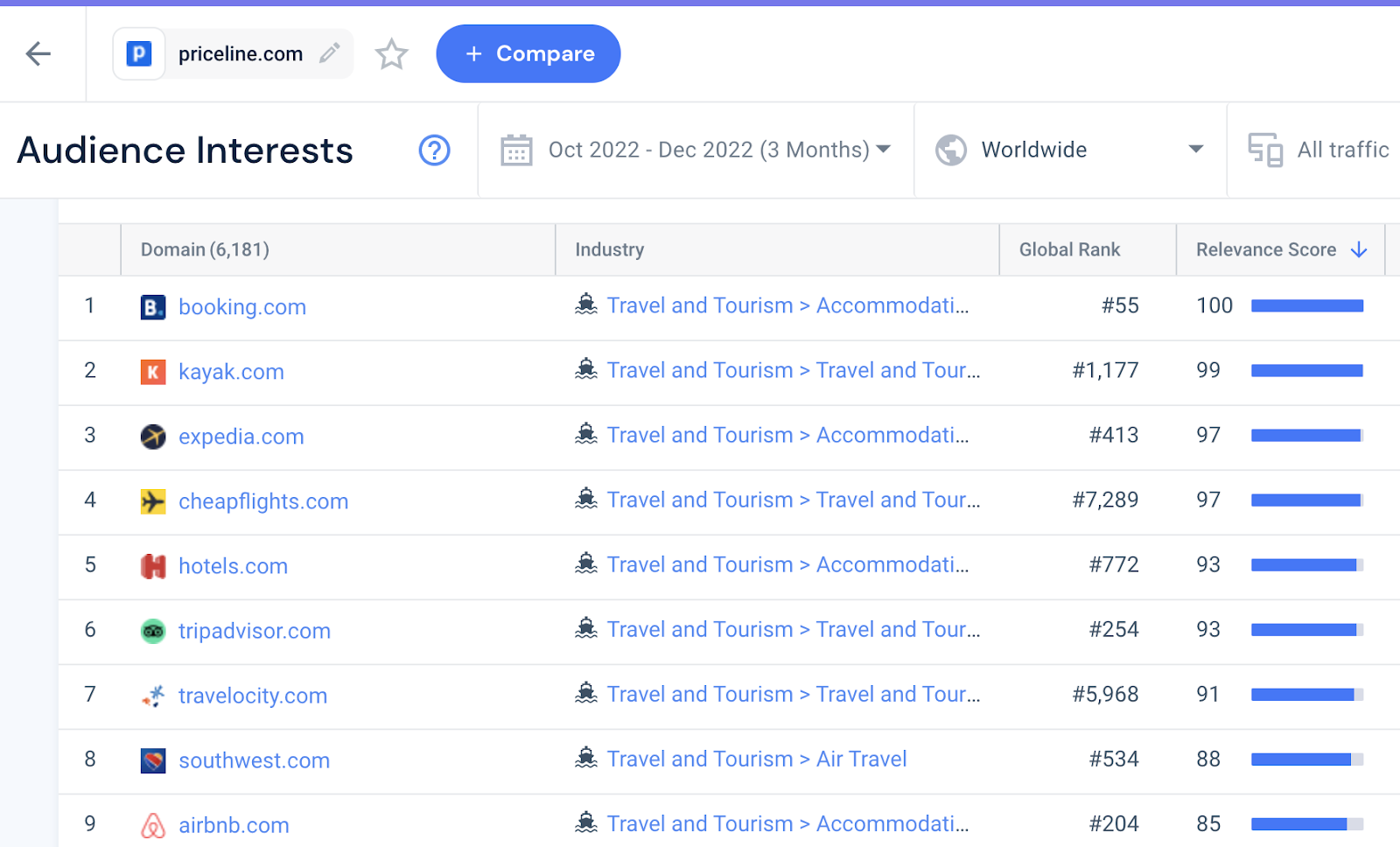One of the key ingredients to any successful campaign is the ability to reach the right people. Over the thousands of campaigns we’ve launched, building the right audience is always at the core of our performance.
We'll walk through 4 ways to build audiences using less-common targeting strategies that we’ve used to find the right people for our clients’ businesses on Facebook. Let's imagine that we’re marketing an amazing, fictional travel company “JDMazing Tours.”

Get High-Level Insights from GA4 and Facebook Company Pages
Your own website’s insights, gleaned from a good GA4 setup, can be a launching pad for building audiences. (Need help with your GA4 migration? We can help!) Facebook pages also provide valuable insights into the demographic that make up the majority of your company page.
These platforms can tell you:
Your site's most popular pages
GA4 helps you deep-dive on which pieces of content or landing pages have kept your audience’s interest, which allows us to narrow our audience based on engagement.
Let’s say there is a lot of engagement with our ‘Top Airline” article. We can make sure to target ‘Airlines’ as an interest or ‘Frequent Flyers” in our target audience.
Your top demographics
Save time and money by reviewing which demographics are already most engaged with your content. Facebook spells it out for us with page insights (see below for an example).
We can even leverage other platforms like LinkedIn to gather some rough demo estimates.

Build Interest Audiences By Leveraging 3rd-Party Data
There are a lot of tools available that pull interesting insights from websites. One of my favorites is Similar Web, although there are many services like it. Using Similar Web we pulled insights about Priceline, a popular travel website and hypothetical competitor of JDMazing:

There are quite a few ways to look at this information. First, check out the ‘industry’ column in the picture. Those are all great ideas for ‘interest’ or ‘behavioral’ targeting – for example, target hotel chains and airline brands. Or, use Facebook’s robust behavioral segments to target people who ‘travel frequently’. Simple enough!
The ‘domain’ column, which lists competitor websites, is another powerful source for audience building; you can build and target audiences based on some or all of them. For example, we could target ‘cheapflights’ and ‘southwest’ as ‘interests’. We’d create a campaign highlighting our travel company’s cheap airfare and leverage the audiences those other 2 companies have built. Based on our data, these websites have very similar audiences to us and would likely result in attracting our ideal web visitors.
Find Brands/People and Life Events That Align With Your Company
Now, we’ll break away from the more obvious segments and go a little more abstract. I would encourage “JDMazing” to target people who have an ‘interest’ in travel content creators like Anthony Bourdain, Rick Steves, or a popular YouTube travel-focused creator. Targeting people and brands popular with users who love travel will help you expand your audience beyond the more upfront ‘travel-themed’ categories.
Life events are another Facebook-specific set of traits that we love to leverage. For our travel agency, we’d look at people celebrating their anniversary within 60-90 days. Couples love to plan getaways to celebrate their year together. We’ll even target fiances in hopes of them planning a honeymoon with us! There are a lot of different life event categories on Facebook - use them to get creative!
Reach People With Disposable Income
While there are tons of reasons people might not be buying our travel packages, we know disposable income is a qualifier. People with disposable income are more likely to take the plunge on a trip of a lifetime.
Yes, you can target by Household Income, but there are other ways to find these users if you’re willing to think creatively. One example is Phone App Type, which can be impactful in industries like ecomm and B2C.
Of these two people, who is likelier to have disposable income (and be digitally fluent enough to make big purchases online)?
While this isn’t 100% accurate, it’s a unique way of finding people who may have more disposable income – and excluding people with older devices.
This is especially important internationally, where ‘buying power’ can be unpredictable from city to city. For example, let’s say the average monthly income in a country is $1,000. By targeting people who own an $800 iPhone, we can assume we’re reaching some of the region’s higher earners/people with disposable income. Additionally, cheaper ‘feature phones’ are widely used in more emerging markets and often have slow load times and aren’t great for browsing modern websites.

Whatever your industry, make sure you’re scheduling time to review the information you’ve got at your fingertips – and brainstorm different ways to use data that your competitors may not be testing.
If you need help with your marketing campaigns, reach out to Jordan Digital Marketing to request an audit.
